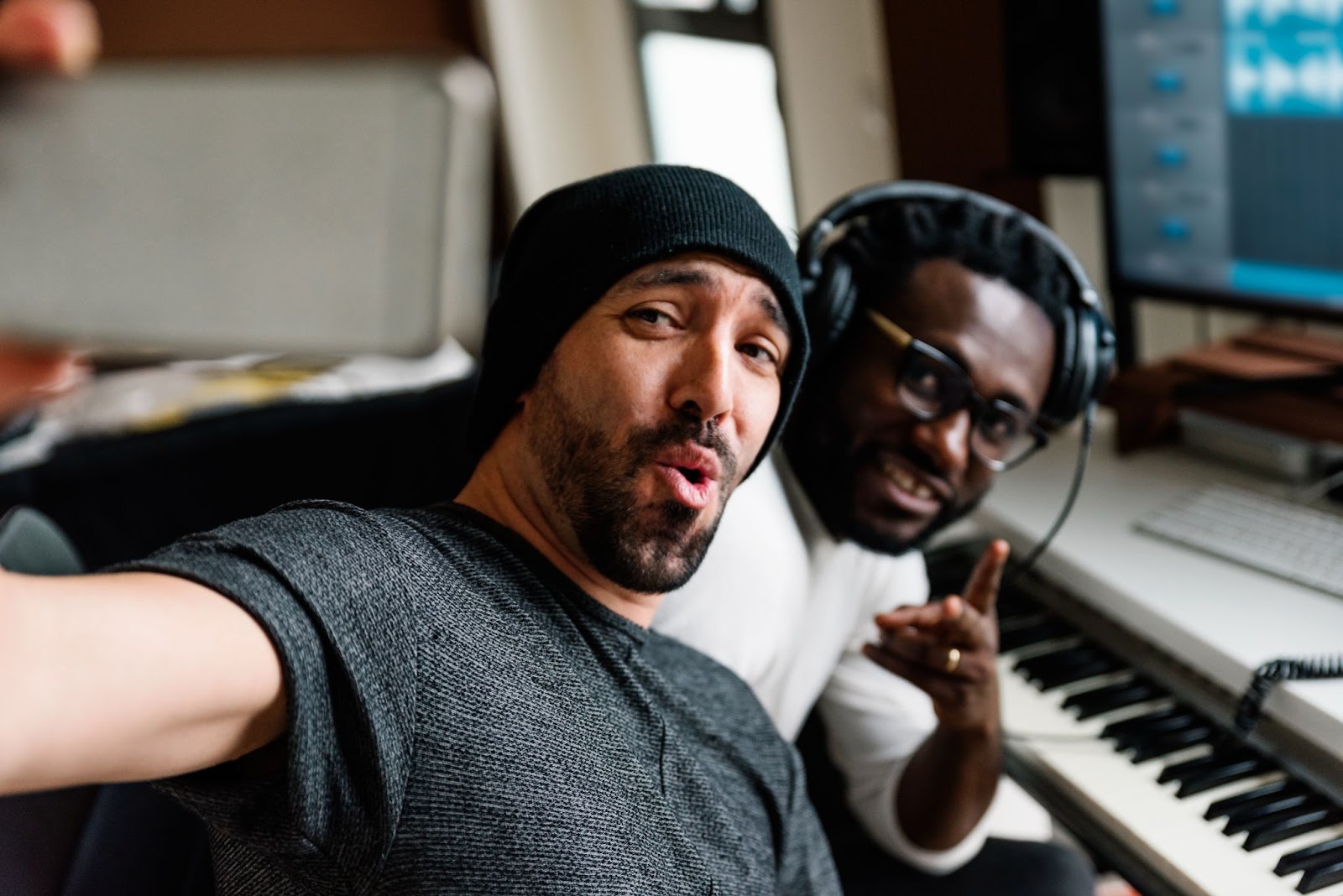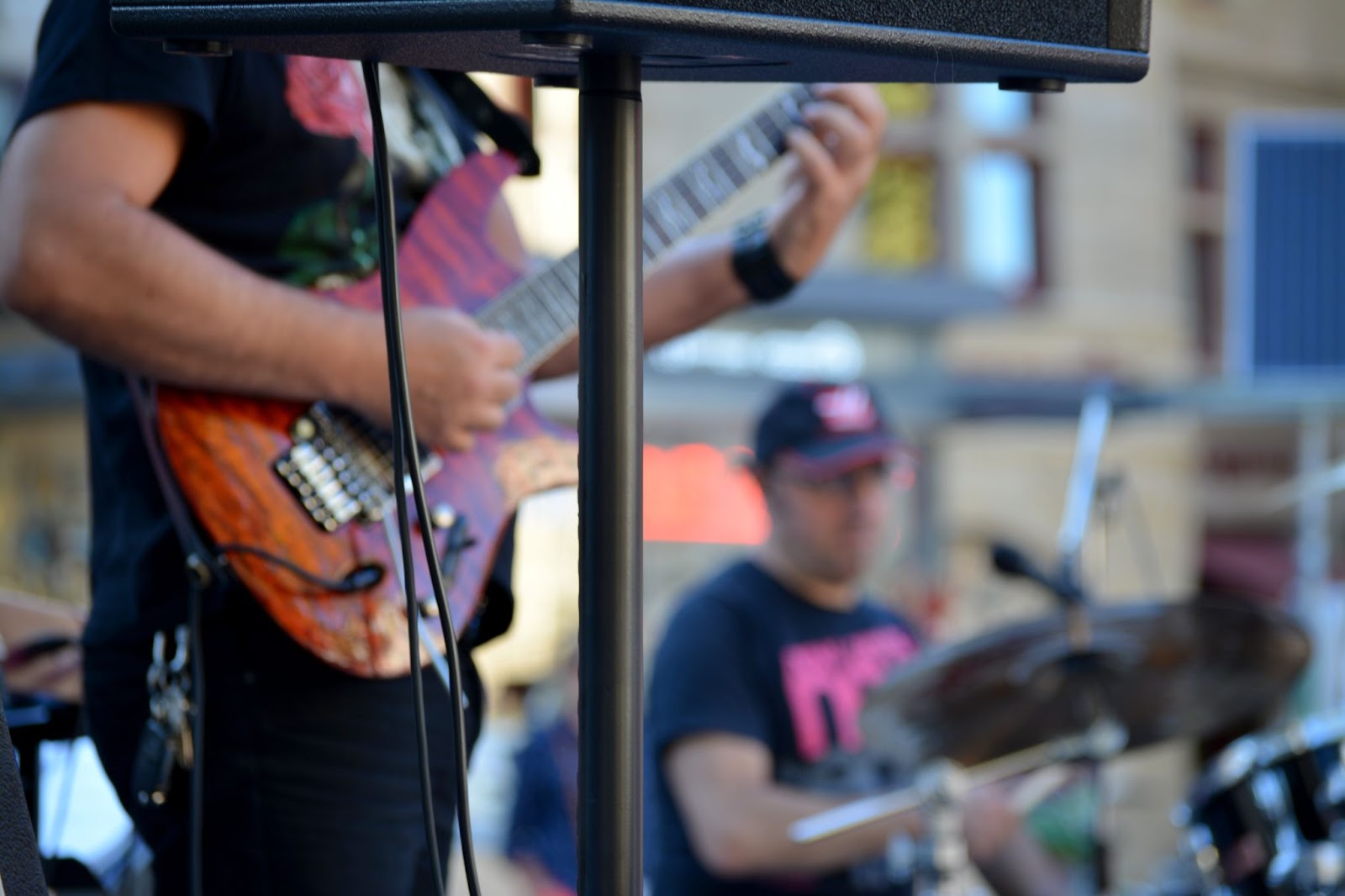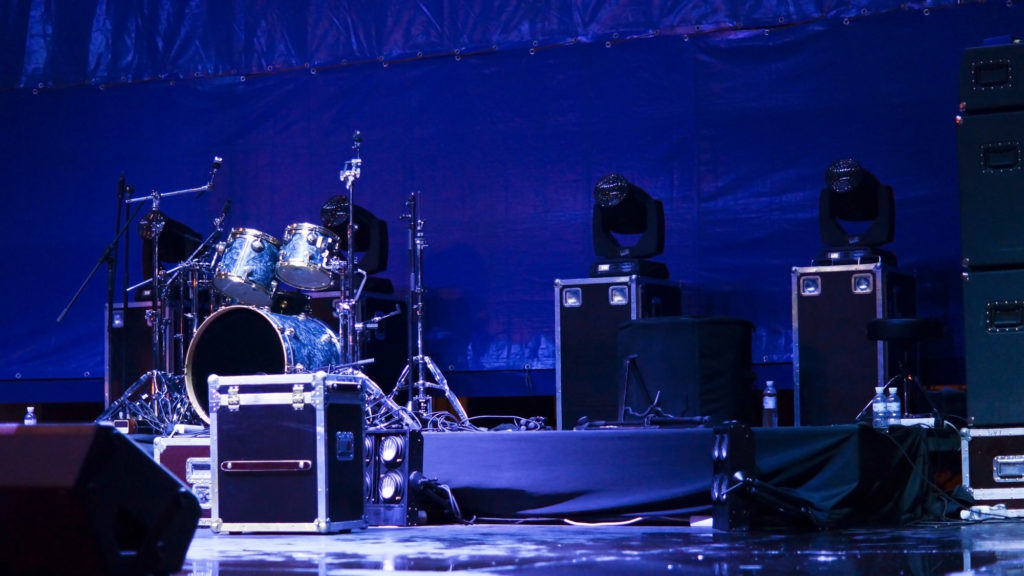
The Promoter’s Guide to Music Industry Partnerships
The modern music landscape has fundamentally shifted how promoters build sustainable businesses. With global music industry revenues reaching nearly 5 trillion streams in 2024 and live music projected to surpass $50 billion by 2030, savvy promoters understand that success means cultivating strategic music industry partnerships that amplify reach, diversify revenue, and create unforgettable experiences.
For today’s promoters, partnerships have evolved from nice-to-have sponsorship deals to essential business relationships that can make or break long-term success. Whether you’re working with venues, brands, artists, or fellow promoters, strategic collaborations can transform your operation from a local player into a regional powerhouse.
The Modern Partnership Landscape: Why Collaboration Beats Competition
Gone are the days when music promotion was a purely solo endeavor. Today’s most successful promoters build extensive networks of strategic relationships that create value for all parties involved. Music industry partnerships now encompass everything from co-promotion agreements and brand sponsorships to venue relationships and artist development collaborations.
Recent industry analysis shows that the live music industry is leveraging data analytics and technology to create more personalized experiences for fans. This shift toward data-driven decision making has made partnerships more valuable than ever, as collaborators can share insights, audiences, and resources to achieve better outcomes than either could accomplish alone.
The rise of hybrid events, sustainability initiatives, and immersive technology experiences has created new partnership opportunities that didn’t exist even five years ago. Forward-thinking promoters are positioning themselves at the center of these collaborative ecosystems.
Essential Types of Music Industry Partnerships for Promoters
Venue Partnerships: The Foundation of Successful Promotion
The relationship between promoters and venues forms the backbone of live music. Smart promoters don’t just book venues, they build genuine partnerships that benefit both parties over time. These relationships go far beyond simple rental agreements to include revenue sharing, co-marketing efforts, and strategic planning for long-term success.
Successful venue partnerships often involve exclusive or preferred booking arrangements, where venues give promoters first access to premium dates in exchange for guaranteed minimums or revenue sharing. Some partnerships include joint marketing efforts, where venues and promoters collaborate on social media campaigns, email marketing, and local press initiatives.
The best venue partnerships also involve operational collaboration. Experienced promoters work closely with venue staff to optimize everything from load-in procedures and sound quality to bar operations and security protocols. This collaborative approach leads to better shows, happier artists, and more satisfied audiences.
Brand Partnerships: Revenue Diversification and Audience Expansion
Brand partnerships have evolved far beyond simple logo placement and banner advertising. Modern music industry partnerships between promoters and brands create immersive experiences that add genuine value for audiences while providing meaningful exposure for sponsors.
According to recent partnership research, securing brand partnerships has become essential for survival in today’s industry, providing crucial revenue streams for many music professionals. The most successful brand partnerships align closely with both the promoter’s audience and the brand’s values, creating authentic connections that feel natural rather than forced.
Innovative brand partnerships might include exclusive product launches at events, branded VIP experiences, sustainability initiatives, or technology integrations. For example, a craft brewery might partner with a promoter to create exclusive event beverages, while a tech company might provide charging stations or interactive experiences that enhance the fan experience.
Artist Development Partnerships
Forward-thinking promoters increasingly focus on artist development partnerships that go beyond traditional booking relationships. These partnerships involve identifying emerging talent early and investing in their growth through multiple shows, marketing support, and industry connections.
Artist development partnerships often include revenue-sharing agreements where promoters receive a percentage of future earnings in exchange for early career support. This might involve showcasing artists at multiple venues, providing marketing and promotional support, or connecting artists with other industry professionals.
These relationships benefit both parties: artists gain valuable industry guidance and performance opportunities, while promoters develop exclusive relationships with rising talent before they become widely sought after.

Building Strategic Partnerships: A Step-by-Step Approach
Identifying Partnership Opportunities
Successful music industry partnerships begin with strategic thinking about what you bring to the table and what gaps exist in your current operation. Start by conducting an honest assessment of your strengths, weaknesses, and growth objectives.
Consider these key areas when evaluating potential partnerships:
- Audience Overlap: Partners should share similar target demographics while potentially reaching different geographic areas or musical niches
- Complementary Skills: Look for partners who excel in areas where you’re weaker, such as marketing, technical production, or financial management
- Resource Sharing: Identify opportunities to share costs, equipment, or promotional efforts that benefit all parties
- Geographic Expansion: Partnerships can help you enter new markets or strengthen your position in existing ones
The most valuable partnerships often emerge from relationships you already have. Venues you work with regularly might be interested in deeper collaboration, while artists you’ve booked successfully could become development partners for future projects.
Approaching Potential Partners
The initial approach to potential partners sets the tone for the entire relationship. Focus on clearly articulating the value you bring and the specific benefits the partnership would provide to all parties involved.
Prepare a concise partnership proposal that outlines your track record, audience demographics, and specific ideas for collaboration. Include concrete examples of successful partnerships you’ve developed previously, along with measurable results when possible.
Remember that the best partnerships feel natural and mutually beneficial from the start. If you have to oversell or convince reluctant partners, the relationship may not be sustainable long-term.
Structuring Partnership Agreements
Well-structured partnership agreements prevent misunderstandings and set clear expectations for all parties. While every partnership is unique, most successful agreements address several key areas:
Revenue sharing arrangements should be clearly defined, including how costs are split and profits are distributed. Payment schedules and accounting procedures need to be established upfront to prevent disputes later.
Marketing and promotional responsibilities must be clearly delineated, including who handles social media, press outreach, and advertising spend. Branding guidelines should specify how each partner’s logo and messaging will be used.
Performance metrics and success criteria help ensure all parties remain aligned throughout the partnership. Regular check-ins and review periods allow for adjustments as circumstances change.
Strategic Partnership Types That Drive Growth
Co-Promotion Partnerships
Co-promotion partnerships allow promoters to share both risks and rewards while expanding their reach and capabilities. These arrangements work particularly well when promoters have complementary strengths or access to different markets.
Successful co-promotion partnerships might involve promoters from different cities collaborating on touring acts, or local promoters partnering with national companies to bring larger acts to their markets. The key is ensuring that both parties contribute meaningful value beyond just financial investment.
Effective partnership management requires clear communication and shared access to information. Modern promoters use specialized software platforms to track partner contributions, share financial data, and coordinate marketing efforts in real-time.
Cross-Genre Collaboration Partnerships
One of the most exciting trends in music industry partnerships involves promoters from different musical genres collaborating to create unique experiences and reach new audiences. These partnerships can breathe fresh life into established music scenes while introducing fans to new styles and artists.
Cross-genre partnerships might involve a hip-hop promoter collaborating with an electronic music specialist to create fusion events, or country and rock promoters working together on festival programming. The key is finding common ground that appeals to both audiences while respecting the integrity of each genre.
These partnerships often lead to some of the most memorable and talked-about events, as they offer something genuinely different from standard programming. They also provide excellent content for social media and press coverage.
Technology and Innovation Partnerships
The rapid advancement of music technology creates numerous partnership opportunities for forward-thinking promoters. Technology partnerships can enhance fan experiences, improve operational efficiency, and differentiate your events from competitors.
Examples of technology partnerships include collaborations with streaming platforms for exclusive content, partnerships with app developers for enhanced fan engagement, or relationships with audio-visual companies for cutting-edge production experiences.
Industry research indicates that venues implementing strategic brand partnerships are better positioned to stand out in the competitive concert industry. Promoters who embrace these partnerships early often gain significant competitive advantages.

Partnership Success Stories: Learning from Industry Leaders
Case Study: Regional Festival Growth Through Strategic Partnerships
A mid-sized music festival in the Pacific Northwest transformed from a local event to a regional destination through strategic music industry partnerships. The festival’s promoters developed relationships with local craft breweries, creating exclusive festival beverages that became a major draw for attendees.
The partnership expanded to include local food vendors, sustainable transportation companies, and regional tourism boards. By the third year, the festival had tripled its attendance and become a significant economic driver for the local community. The success came from ensuring that each partnership added genuine value for attendees while supporting the festival’s core mission.
The promoters used integrated management software to coordinate with all partners, sharing real-time data about attendance, sales, and customer feedback. This transparency built trust and enabled continuous improvement of the partnership arrangements.
Multi-City Tour Collaboration Success
Two independent promoters in different markets developed a partnership for routing touring acts between their cities, creating a mini-circuit that attracted artists who might not have visited either market individually. The collaboration reduced costs for touring artists while providing both promoters access to acts they couldn’t have booked independently.
The partnership expanded to include shared marketing efforts, with each promoter cross-promoting shows in the partner’s market to capture traveling fans. Within two years, the collaboration had grown to include four markets and became a preferred routing option for several major booking agencies.
Brand Integration Excellence
A promoter specializing in electronic music developed an innovative partnership with a sustainable energy company, creating events powered entirely by renewable energy sources. The partnership generated significant media attention while aligning perfectly with the environmental values of the electronic music community.
The energy company provided technical expertise and equipment while the promoter contributed marketing reach and event production skills. The partnership expanded to include educational components about sustainability, turning concerts into learning experiences that deepened fan engagement.
Revenue Optimization Through Strategic Partnerships
Diversifying Income Streams
Smart promoters use music industry partnerships to create multiple revenue streams that reduce dependence on ticket sales alone. These might include merchandise partnerships, food and beverage collaborations, VIP experience packages, or branded content creation.
Partnership-based revenue streams often provide better margins than traditional ticket sales, as they typically involve shared costs and risks. They also tend to be more recession-resistant, as partners are often committed for longer terms than individual ticket buyers.
The key to successful revenue diversification is ensuring that additional income streams enhance rather than detract from the core concert experience. Fans should feel that partnerships add value rather than appearing as obvious cash grabs.
Shared Cost Structures
Well-structured partnerships can significantly reduce the financial risks associated with live music promotion. By sharing costs with partners, promoters can afford to take chances on new artists or experimental events that might not make financial sense as solo ventures.
Shared cost structures work particularly well for marketing and promotional expenses, which often benefit all partners equally. Equipment sharing, venue costs, and production expenses can also be distributed among partners based on their specific contributions and benefits.
Long-term Value Creation
The most successful music industry partnerships focus on long-term value creation rather than short-term financial gains. This might involve accepting lower profits initially in exchange for building relationships that will pay dividends over years.
Long-term thinking also applies to partner development, where promoters invest time and resources in helping partners improve their own operations. This collaborative approach often leads to stronger, more profitable relationships over time.
Partnership Management Best Practices
Communication and Transparency
Effective partnership management requires consistent, transparent communication among all parties. Regular check-ins, shared performance dashboards, and open dialogue about challenges help maintain strong relationships even when facing difficulties.
Modern partnership management benefits from technology platforms that provide real-time visibility into key metrics, financial performance, and operational status. This transparency builds trust and enables proactive problem-solving.
Establish regular communication schedules that work for all partners, whether that’s weekly calls, monthly reports, or quarterly strategy sessions. The key is consistency and ensuring that all parties stay informed about important developments.
Performance Measurement and Optimization
Successful music industry partnerships require clear metrics and regular performance evaluation. Establish key performance indicators (KPIs) that matter to all partners, such as attendance growth, revenue targets, audience engagement metrics, or brand awareness measures.
Regular performance reviews help identify what’s working well and where improvements are needed. Be prepared to adjust partnership terms or strategies based on performance data and changing market conditions.
Document lessons learned from each partnership to improve future collaboration efforts. This institutional knowledge becomes valuable as you develop additional partnerships and refine your approach.
Conflict Resolution and Problem Solving
Even the best partnerships occasionally face challenges or disagreements. Establish clear procedures for addressing conflicts before they escalate into relationship-threatening disputes.
Focus on collaborative problem-solving rather than assigning blame when issues arise. Often, challenges present opportunities to strengthen partnerships by working together to find creative solutions.
Having clear partnership agreements helps resolve disputes by providing agreed-upon frameworks for decision-making and problem resolution.
Future Trends in Music Industry Partnerships
Technology-Enabled Collaborations
Advancing technology continues to create new partnership opportunities for promoters. Virtual and augmented reality experiences, AI-powered fan engagement tools, and blockchain-based ticketing systems all present collaboration possibilities.
Industry projections suggest that immersive technologies and sustainable practices will become increasingly important in live music. Promoters who develop early partnerships in these areas may gain significant competitive advantages.
Smart promoters are beginning to explore partnerships with gaming companies, social media platforms, and streaming services to create integrated entertainment experiences that extend beyond traditional live events.
Sustainability and Social Impact Partnerships
Environmental and social consciousness is becoming increasingly important to music fans, particularly younger demographics. Partnerships focused on sustainability, social justice, or community development can differentiate events while contributing to important causes.
These partnerships often generate significant media attention and social media engagement, as fans appreciate authentic efforts to make positive impacts. They also tend to attract partners who are committed to long-term relationships rather than short-term promotional opportunities.
Global and Cross-Cultural Collaborations
The music industry’s increasing globalization creates opportunities for partnerships that cross geographic and cultural boundaries. Promoters who develop relationships with international partners can access new markets and bring unique cultural experiences to their local audiences.
These partnerships require cultural sensitivity and patience but can lead to some of the most rewarding and distinctive events. They also position promoters for growth as the industry becomes increasingly international.
Essential Tools for Partnership Success
Modern Management Platforms
Effective music industry partnerships require sophisticated coordination and communication. Modern promoters rely on integrated management platforms that facilitate collaboration while maintaining clear visibility into all partnership activities.
Comprehensive event management tools enable real-time collaboration between partners, automated financial tracking, and streamlined communication workflows. These platforms prevent the miscommunications and oversights that can damage partnership relationships.
Look for platforms that offer partner-specific access controls, collaborative planning tools, and integrated financial reporting. The ability to share specific information with different partners while maintaining overall security is crucial for complex partnership arrangements.
Financial Tracking and Reporting
Transparent financial management builds trust among partners and ensures accurate profit distribution. Use financial tracking systems that provide real-time visibility into revenues, costs, and profitability for all partners.
Automated reporting capabilities save time and reduce errors that can cause partnership disputes. Partners should have access to relevant financial data without compromising sensitive information that doesn’t concern them.
Communication and Collaboration Tools
Streamlined communication tools help manage the complexity of multi-partner projects. Look for platforms that integrate messaging, file sharing, task management, and calendar coordination in a single interface.
The best collaboration tools maintain conversation histories organized by project or event, making it easy to reference previous decisions and agreements. This documentation becomes invaluable when partnerships evolve or face challenges.
Building Your Partnership Strategy
The future of music promotion belongs to those who understand that success comes through collaboration rather than competition. Music industry partnerships provide the foundation for sustainable growth, risk mitigation, and creative innovation that sets exceptional promoters apart from the crowd.
Building a successful partnership strategy requires patience, clear communication, and a genuine commitment to creating value for all parties involved. Start with small, manageable partnerships that allow you to develop your collaboration skills and build a track record of success.
Focus on relationships that align with your values and long-term objectives rather than pursuing partnerships solely for short-term financial gains. The most valuable partnerships often take time to develop but provide benefits that compound over years.
Remember that partnership success requires ongoing attention and nurturing. Invest in the tools and processes necessary to manage partnerships effectively, and always prioritize transparency and communication.
As the live music industry continues its rapid growth, promoters who master the art of strategic partnerships will be best positioned to thrive in an increasingly competitive marketplace. Start building your partnership network today, and discover how the right management platform can help you coordinate collaborations, track partner contributions, and build the relationships that will drive your long-term success.
Frequently Asked Questions
Q: How do I find potential partners for my music promotion business? A: Start by identifying businesses and individuals who serve similar audiences but offer complementary services. Attend industry events, join local music industry organizations, and engage with venues, artists, and other promoters on social media. The best partnerships often grow from existing professional relationships and mutual referrals.
Q: What should be included in a music industry partnership agreement? A: Key elements include revenue sharing arrangements, cost distribution, marketing responsibilities, performance metrics, communication protocols, and conflict resolution procedures. Also specify partnership duration, termination conditions, and intellectual property usage rights. Consider having an entertainment lawyer review important agreements.
Q: How can I measure the success of my music industry partnerships? A: Track relevant metrics such as attendance growth, revenue increases, cost savings, audience engagement, and brand awareness. Also monitor qualitative factors like partner satisfaction, creative opportunities, and long-term relationship development. Regular performance reviews help ensure partnerships continue providing value for all parties.
Q: What are the biggest mistakes to avoid in music industry partnerships? A: Common mistakes include unclear communication, inadequate documentation, misaligned expectations, and focusing solely on short-term financial gains. Also avoid partnerships where the value proposition isn’t mutual, or where partners don’t share similar professional standards and values.Q: How do I manage multiple partnerships simultaneously without conflicts? A: Use comprehensive management software to track all partnership activities, maintain clear communication channels, and establish protocols for handling competing interests. Ensure partnership agreements address exclusivity and conflict situations upfront. Regular partner meetings and transparent reporting help prevent misunderstandings.

Matt Ford is the founder and CEO of Prism.fm, an Austin-based software company revolutionizing live music event management. With a background in entrepreneurship and a degree from the University of Wisconsin-Madison School of Business, Ford combined his self-taught coding skills with firsthand experience as a concert promoter to address the inefficiencies he observed in the industry. In 2018, he launched Prism.fm, an all-in-one platform designed to streamline operations for venues, promoters, and agencies by replacing cumbersome spreadsheets with integrated tools for booking, financial tracking, and contract management. Under his leadership, Prism.fm has grown significantly, achieving $3 million in annual recurring revenue post-COVID and securing over $15 million in funding . Ford’s commitment to building user-centric solutions has positioned Prism.fm as a trusted partner for over 1,500 venues and promoters worldwide.


